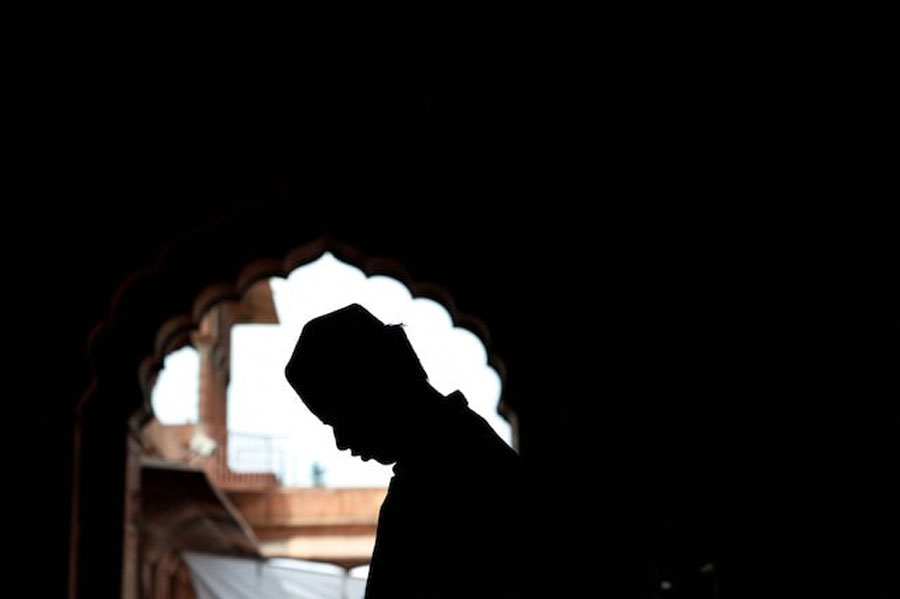
Published :
Updated :

The number of Muslims grew more than all other religions combined, making Islam the fastest-growing religion over the decade between 2010 and 2020, a new study by the Pew Research Center has found, according to Middle East Eye.
Pew's Global Religious Landscape study, released on Monday, attributed the growth of Islam to natural demographic growth. It also concluded that at the global level, Muslim population change had "little to do with people converting into or out of the faith", the outlet reported.
"Muslims have more children and are younger, on average, than members of any other major religion," the study observed, according to the London-based outlet.
"Based on data for the 2015–2020 period, we estimated a Muslim woman would have 2.9 children, on average, in her lifetime, compared with 2.2 children per non-Muslim woman," the publication cited the report as saying.
The study, which examined how global religious composition changed between 2010 and 2020, concluded that while Christianity remained the world’s largest religion, comprising 2.3 billion people, the gap between the proponents of Islam and Christianity continued to shrink, Middle East Eye pointed out.
The world’s Christian population has decreased by about 1.8 per cent since 2010, the news outlet reported, referring to the study.
Regional changes
The increase in the number of Muslims in the world was concentrated primarily in Muslim-majority countries, the findings stated, according to Middle East Eye.
Islam saw the largest growth relative to other religions in Kazakhstan, Benin, and Lebanon, while the share of Muslims in Oman and Tanzania decreased, the news outlet explained.
The percentage of religiously unaffiliated people grew particularly steeply in the US, with an increase of 97 per cent from 2010, Middle East Eye’s report noted.
The majority of religiously unaffiliated people live in China, where 1.3 billion people are not affiliated with any religion, the study remarked, according to Middle East Eye.
Pew’s analysis found that Christians were still a majority in 60 per cent of all countries and territories surveyed. However, Christianity decreased by at least five per cent in 40 countries, while only significantly increasing in one, the UK-based news site explained.
Pew attributed part of this decline to people leaving Christianity, by measuring the number of adults who changed their religion to one different than the one they were raised in, Middle East Eye wrote.
Between 2010 and 2020, for every one adult that joined Christianity, three left, the outlet emphasised.
For the religiously unaffiliated, the opposite was true. For every one adult who stopped being unaffiliated religiously, three more became religiously unaffiliated, it continued.
Both Buddhism and Hinduism also saw more adults leave their religion than join it, the report said.
Islam was the only religion where more adults joined than left, it added.
The Growth of Islam
Islam is the world’s second-largest religion, with around two billion people, or around a quarter of the world’s population, according to Middle East Eye.
It grew by nearly 350 million people since 2010, almost three times as much as Christianity and more than all other religions combined, the site mentioned.
There are also nearly two billion religiously unaffiliated people, an increase of 270 million people since 2010, Middle East Eye highlighted.
They were the only category, along with Muslims, to grow relative to other religions as a share of the world’s population, the report explained.
Hinduism, the world’s third-largest religion, with 1.2 billion people, grew by 126 million people, according to Middle East Eye.
However, its percentage of the world’s population remained unchanged, the news outlet remarked.
The number of people belonging to other religions, such as Sikhism and Baha'i, grew to around 200 million people, or 2.2 per cent of the world’s population, according to Middle East Eye’s report.
Judaism grew by nearly a million people and remained around 0.2 per cent of the world’s population, the report noted.
Buddhism was the only major religion to have fewer people in 2020 than in 2010, with a decrease of 18.6 million people, Middle East Eye underscored.
It fell from around five percent to four percent of the world’s population, the report concluded.


 For all latest news, follow The Financial Express Google News channel.
For all latest news, follow The Financial Express Google News channel.